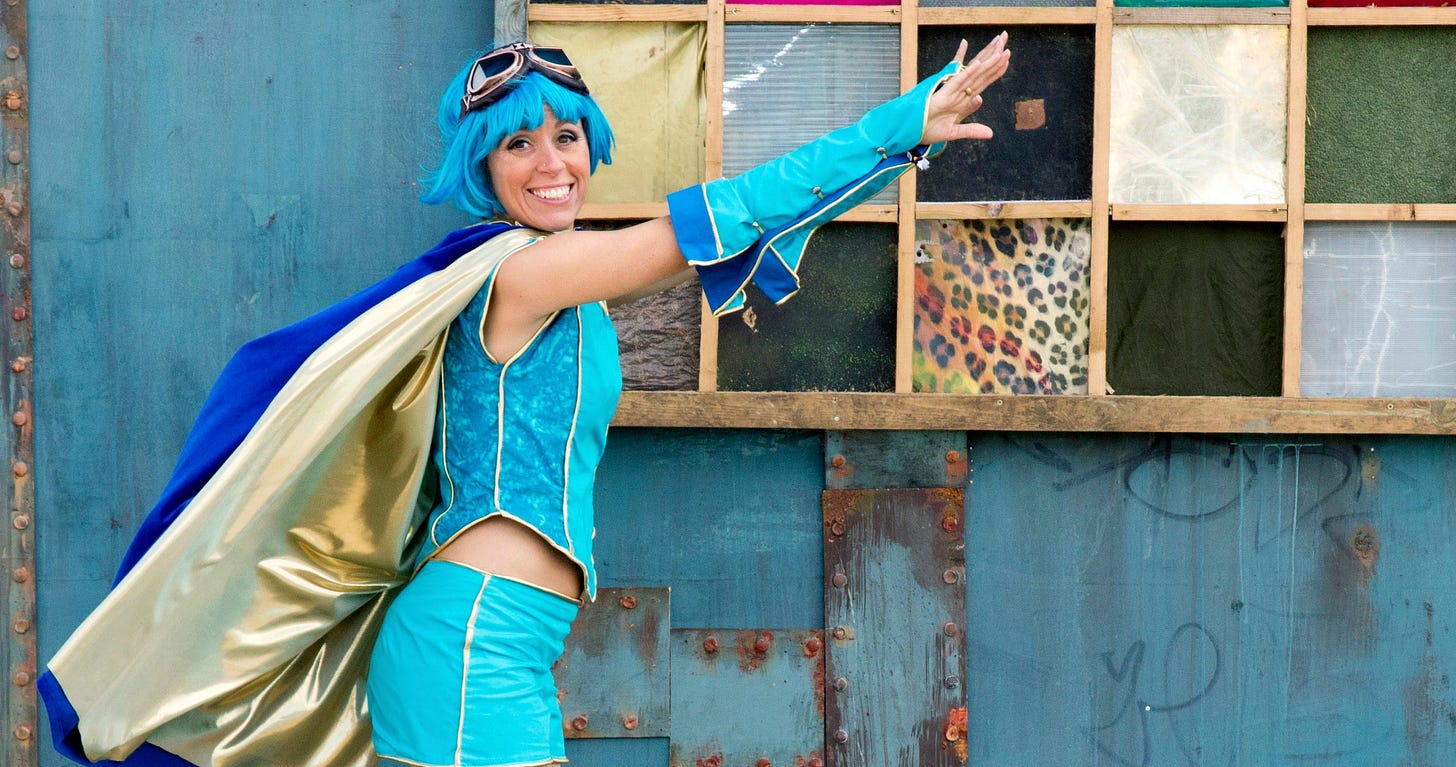When You Stop Waiting for the Perfect Conditions
Entrepreneur Office Hours - Issue #307
This week’s insight from my Duke colleagues comes from Ryan Bolick, Duke’s resident expert in AI, design, and engineering innovation.
Ryan lives right at the intersection of technology and entrepreneurship — he’s even half appointed by the Pratt School of Engineering and half with Innovation & Entrepreneurship — and he spends his time helping founders figure out how to actually build in a world where the tools are evolving faster than the textbooks.
Here’s the short lesson Ryan shared when I asked him what every entrepreneur should know:
“Don’t wait for perfect conditions. There will always be constraints, ambiguity, and better-funded competition. You create the conditions to succeed with creativity, relentless iteration, and solving real problems for real people.”
That advice is particularly fun because it’s both old-school, timeless advice and perfectly suited to the rapidly advancing moment in which we’re all trying to survive/innovate.
The Myth of Perfect Conditions
If you’ve ever built anything — a startup, a course, a piece of content, a career — you’ve probably found yourself waiting for “better conditions.”
When I have more time…
When I’ve saved more money…
When the technology gets better…
When I know more…
We trick ourselves into thinking there’s going to be a future version of life where things are smoother, clearer, and easier, and we can finally take the big risk. But, as Ryan reminds us, that moment never comes.
There’s no “perfect” time to start. There’s only now — and what you do with it.
I also love that Ryan’s perspective comes from an engineering background because engineers know constraints aren’t the enemy — they’re the design space.
In other words, constraints are what force focus, clarify priorities, and make creativity necessary. Heck, that’s what entrepreneurship actually is — creativity under constraint. You never have enough money, enough time, enough clarity, or enough certainty. But if you wait for all of that to appear, you’ll never build anything at all.
As a result, the best founders I know don’t worry about fighting the constraints. They build around the constraints. They treat the limitations like design prompts and iterate until something works.
Make Your Own Momentum
Ryan’s work in AI makes that mindset even more relevant. After all, in the AI era, the conditions for building are changing daily. What’s “state of the art” this week will be outdated next month. Who knows… it might be outdated by tomorrow. So if you wait for the dust to settle before you act, you’ll basically never act at all.
In contrast, the people most likely to thrive in this new landscape — whether they’re engineers, entrepreneurs, or creators — are the ones who stop waiting for certainty and start experimenting now. They’ll build, test, fail, adapt, and repeat. They’ll use the tools that exist today to create the conditions for what’s next.
And that’s because Ryan’s right — perfect conditions don’t appear. We make them. Through creativity. Through relentless iteration. Through solving real problems for real people.
Simply put, you don’t need more certainty. You don’t need permission. You just need to start building right where you are and with what you’ve got.
— Aaron
This week’s new articles…
The Embarrassing Superpower Behind Every Great Entrepreneur
What if being a great founder also requires you to look (and feel) a little dumb?
The Brutal Law of Entrepreneurship Nobody Escapes
No matter how much you try, you’ll never be able to avoid one fundamental reality of creating products.
Office Hours Q&A
QUESTION:
Hi Dr. Dinin,
I’ve been trying to build a small business while working nights at a restaurant. It’s been slow, but I’ve made some progress. I’ve even got few customers. The problem is, I’m completely drained. I know “consistency is key,” but I don’t know how to be consistent when I’m exhausted and broke and trying to do everything myself. Any suggestions for how to build without any resources (including time!)?
Thanks for all the content. Your stuff keeps me going!
—Luis
Building a business while working nights at a restaurant? Honestly, that’s the kind of hustle people like to romanticize, but only the people living it know how hard it actually is.
My best suggestion: Stop trying to do everything.
When you don’t have a lot of resources — time, energy, money — the worst thing you can do is spread them thin. You’ll end up halfway through ten things instead of all the way through one. And in business, progress beats potential.
Pick the smallest possible thing that moves your business forward and do just that — over and over again. Maybe it’s sending one email a day. Maybe it’s talking to one customer. Maybe it’s packaging one order or fixing one bug or writing one sentence of copy.
Whatever it is, make it manageable, make it repeatable, and, as best you can, make it boring. I realize that probably seems like weird advice, but boring things are often the most sustainable. And when you’re operating at the edge of burnout, sustainability matters more than ambition.
Also, a quick note just to acknowledge: If it feels like you’re building slower than other people, that’s because you are. You have a job. You have bills. You have a life. But if you’re still making progress under those conditions — even small progress — that’s something to be proud of. That’s not failure. That’s endurance. And it’s amazing. Keep going!
Got startup questions of your own? Reply to this email with whatever you want to know, and I’ll do my best to answer.





Sometimes, getting more efficient in a business means letting less significant tasks or "offers" for customers go by the wayside and restrict your customer work to what you do best in faster time. And you can try to then optimize that time even more.
Haircut twins? You could be actual twins!